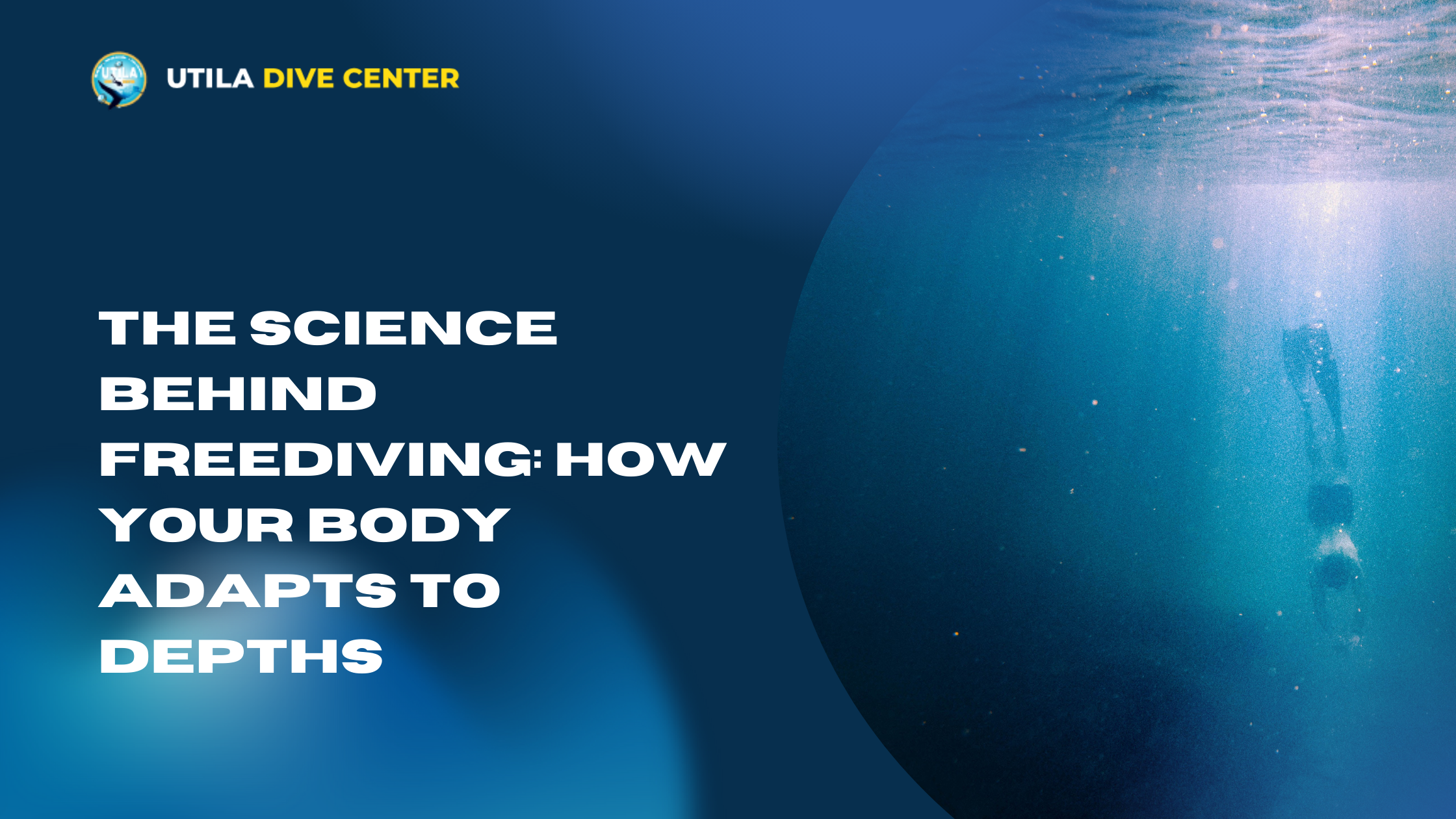
The Science Behind Freediving: How Your Body Adapts to Depths
The Science Behind Freediving: How Your Body Adapts to Depths
By: Manny Lagos | Date: 2025-04-24T06:38:36.939Z
Do you know what freedivers do? They dive deep into the ocean and reach incredible depths, sometimes hundreds of feet– with just a single breath. Sounds impossible, right? Especially for people who have never tried it before. But not only is it possible– it’s actually a lot of fun.
What’s even more fascinating? Freediving isn’t just a recreational activity, It's also a competitive sport that has been around for centuries now.
But it isn’t just about holding your breath and diving in, freediving in depths is more about pushing the limits of the human body in ways you wouldn’t even imagine.
Overview of Physiological Adaptations
From the moment you descend into the water on a single breath, your body undergoes a series of physiological changes– your heart rate slows, specialised reflexes kick in and oxygen is redirected to your most vital organs.
These underwater body adaptations, known as the mammalian diving reflex, spleen contraction, and pressure-related changes, help you go deeper and stay in the water for longer durations.
Understanding the science behind these underwater body adaptations is crucial for anyone looking to push their limits and explore the underwater world in the most natural way possible.
So, let’s dive in (pun intended) and learn about each one in detail.
The Mammalian Diving Reflex
Did you know we share a unique survival mechanism with marine creatures like dolphins, whales, and seals? It’s called the Mammalian Diving Reflex. This powerful natural response is triggered the moment your face hits the water and it mainly consists of 3 main physiological changes:
- Bradycardia:
As soon as you inhale and submerge your face in water, your heart rate slows down (sometimes it drops by more than 50%). This helps conserve oxygen so you can stay submerged longer.
- Peripheral Vasoconstriction:
Think of this as blood rerouting. Once you go underwater, blood flow is automatically redirected away from your limbs and distributed to vital organs like the heart and brain. This makes sure they’re well-oxygenated and prepared for the dive.
- Blood Shift:
As you go deeper underwater and the pressure increases, your body naturally redistributes blood into your chest cavity. This helps prevent lung collapse, maintains equilibrium, and also allows you to reach new depths beneath the waves.
Spleen Contraction and Oxygen Management
Not many people know this but your spleen actually plays a huge role in freediving underwater. How, you might ask? Well, the spleen acts as a natural blood bank and stores oxygen-rich red blood cells in your body. During a dive, it contracts and releases a fresh supply of oxygen-packed cells into your bloodstream.
This elevated haemoglobin concentration gives freedivers an edge when it comes to their breath-hold time (prolonged apnea) and improves their endurance as well.
And here’s the best part: the more you dive, the better your spleen gets at oxygen management.
Adaptations to Pressure Changes
Freediving in depths means dealing with increased water pressure (by the time you hit 9-10 meters, the pressure almost doubles). But don’t worry, your body is designed to handle this.
Here’s what happens:
- Lung compression:
As you descend, the external pressure increases and your lungs shrink. To compensate, blood shifts into the thoracic cavity, ultimately maintaining function and preventing lung collapse.
- Equalization techniques:
You know that pressure in your ears when flying or diving? Regulating that pressure is key to preventing any discomfort or injury (barotrauma).
Freedivers often use techniques like the Valsalva technique and Frenzel maneuver to equalize the increased pressure and have an amazing experience underwater!
- Increased carbon dioxide tolerance:
Over time (and with a lot of practice), freedivers develop a higher tolerance to CO2 buildup. It helps them delay the sensation of breathlessness and go for longer freedives.
Now that we’ve explored these amazing physiological adaptations in detail, let’s talk about how you can train and hone your natural abilities to make every dive count!
Training the Body for Freediving
When it comes to freediving, proper training helps you improve breath-hold times, dive deeper, and stay safe underwater.
But how exactly do you train your body to handle the deep?
Let us help you out:
- Breath-hold training
Practising static apnea (holding your breath while sitting still) in a controlled setting helps increase lung capacity and use oxygen more efficiently. It’s also a great way to understand your body’s limits and monitor progress over time.
- Relaxation techniques
Freediving isn’t just about your physical capabilities, your mental state plays a significant role too. If you’re stressed, you won’t be able to dive well. So practice mindfulness like yoga and meditation to manage stress and enhance your overall dive performance.
- Cardiovascular and strength training
Do you want to glide in the water effortlessly? Cardio and strength workouts like swimming, running, and weight training help you build endurance and strengthen essential muscles, especially in your core and legs.
Remember, the stronger your body is, the less energy you’ll spend on every dive!
- Diet and hydration
Diet and hydration might not seem as important as breath-holding, equalization or other freediving techniques, but they impact your diving performance more than you think.
Eating antioxidant-rich foods will help reduce oxidative stress, while proper hydration will keep your sinuses and lungs in check.
Conclusion
Freediving isn’t just a fun sport, it’s a true testament to the power of the human body. By understanding how your body adapts to depth and increased pressure, you can work on your techniques, prepare well, and explore the underwater world with ease and confidence.
At Utila Dive Centre (UDC), we help freedivers of all levels do just that. It doesn’t matter if you’re taking your first breath-hold dive or looking to refine your diving techniques, our expert instructors and comprehensive training programs are here to back you up with all the knowledge and support you need. You can check out our AIDA freediving certification to learn more about freediving.
So, get ready to unlock your full potential underwater and experience the ocean like never before with Utila Dive Centre!
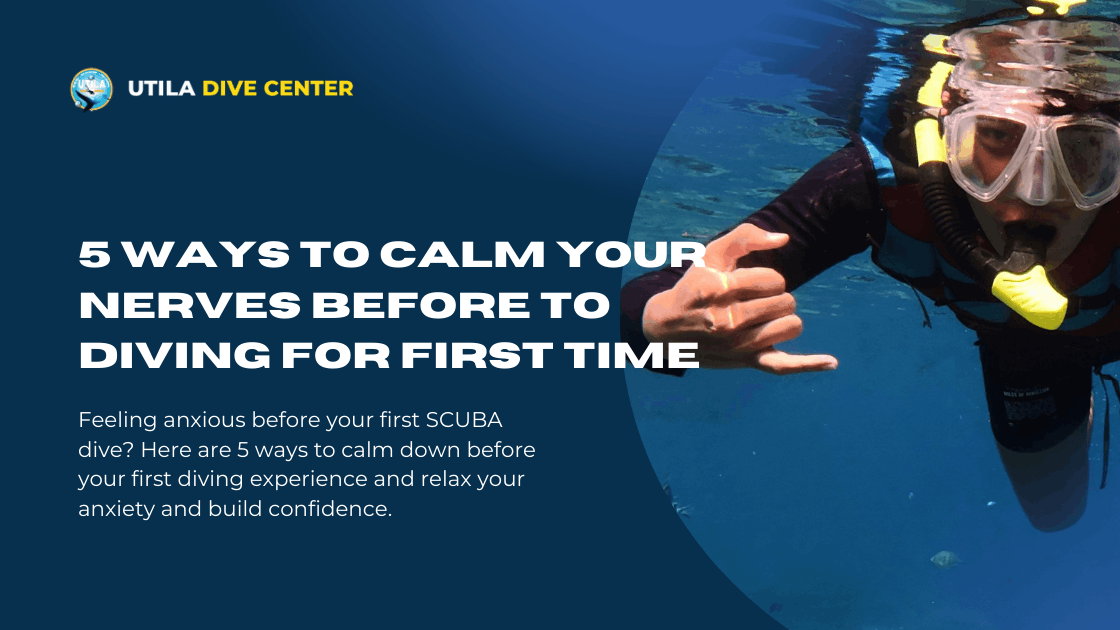
5 Ways to Calm Your Nerves Before to Diving for First Time
Feeling anxious before your first SCUBA dive? Here are 5 ways to calm down before your first diving experience and relax your anxiety and build confidence.
Read more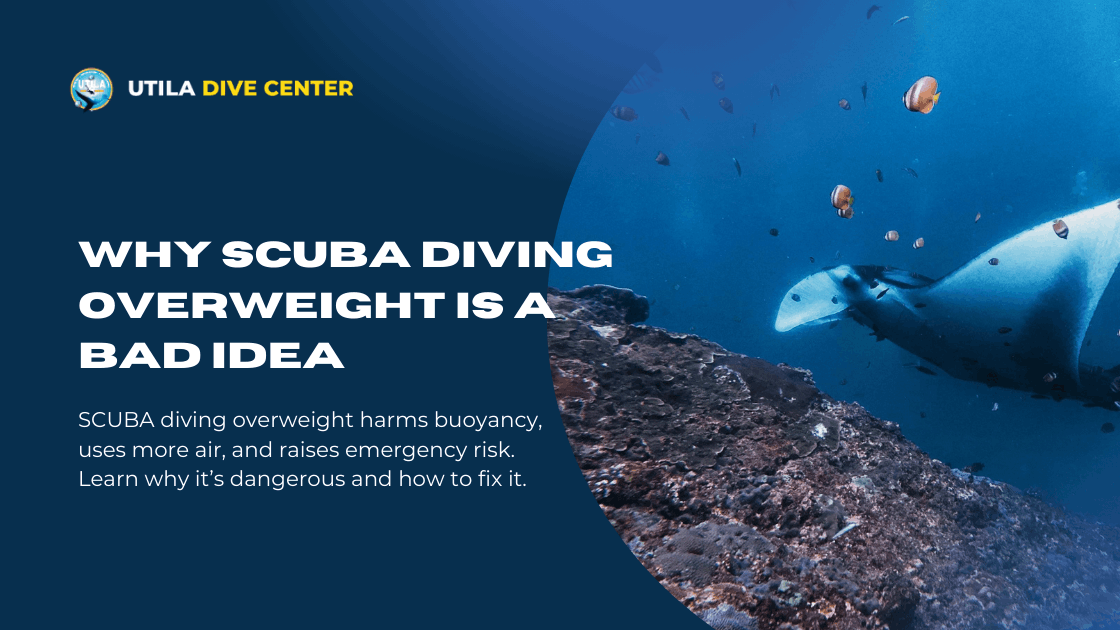
Why SCUBA Diving Overweight Is a Bad Idea
SCUBA diving overweight harms buoyancy, uses more air, and raises emergency risk. Learn why it’s dangerous and how to fix it.
Read more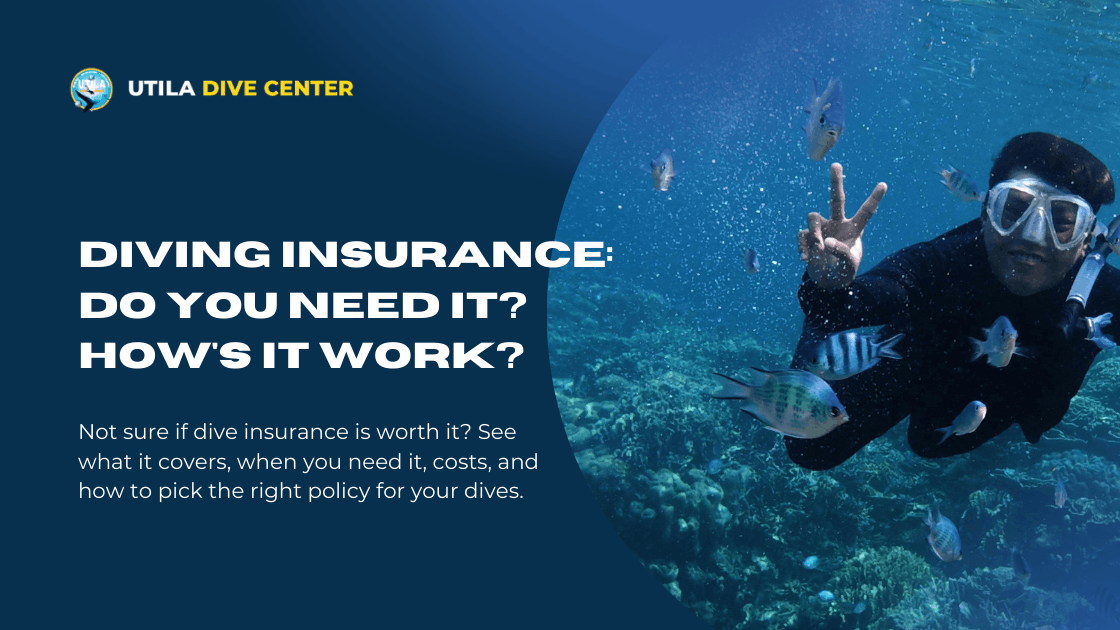
Diving Insurance: Do You Need It? How's It Work?
Not sure if dive insurance is worth it? See what it covers, when you need it, costs, and how to pick the right policy for your dives.
Read more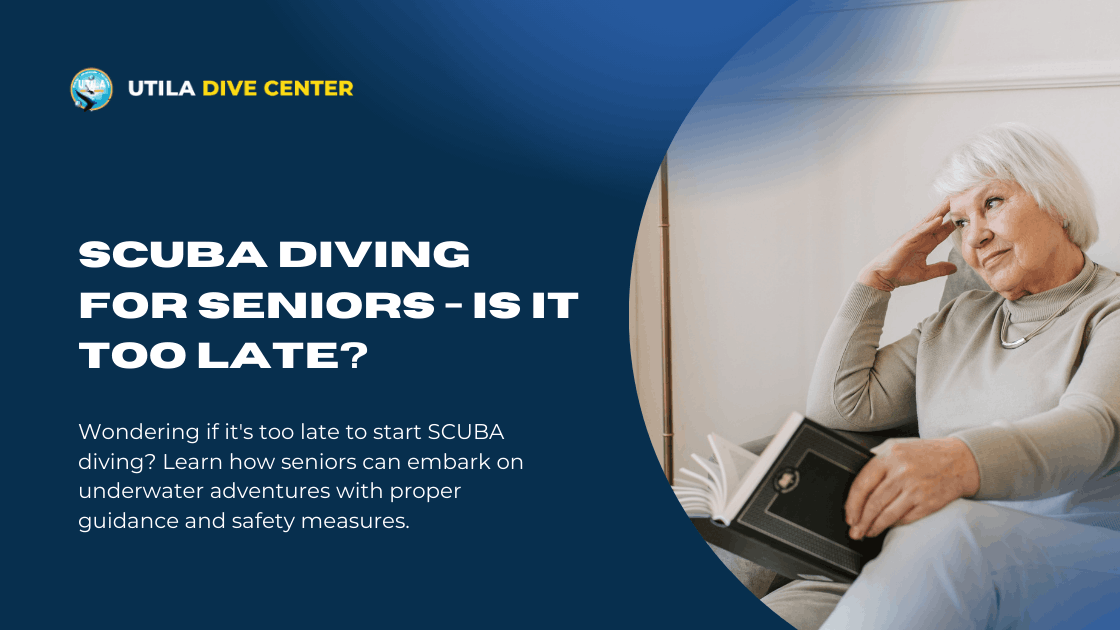
SCUBA Diving for Seniors - Is It Too Late?
Wondering if it's too late to start SCUBA diving? Learn how seniors can embark on underwater adventures with proper guidance and safety measures.
Read more